New Garden Arrival
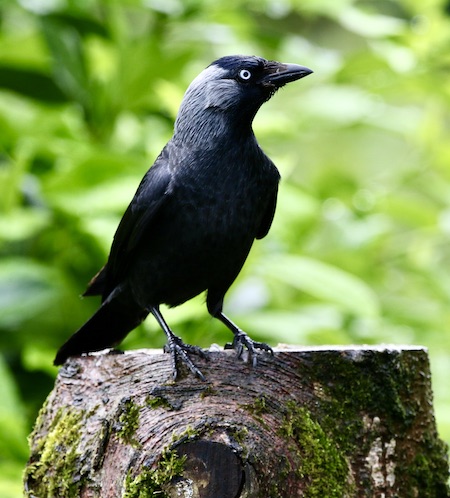 It may have taken more than fifty years but last week we had a new species visit the garden – it was a Jackdaw! By chance I had just been watching Jackdaws taking fine hair off the local cattle to line their nests.The wet weather also brought into the garden hordes of Starlings with their young and Song Thrushes who found no trouble finding slugs in the rain.
It may have taken more than fifty years but last week we had a new species visit the garden – it was a Jackdaw! By chance I had just been watching Jackdaws taking fine hair off the local cattle to line their nests.The wet weather also brought into the garden hordes of Starlings with their young and Song Thrushes who found no trouble finding slugs in the rain.


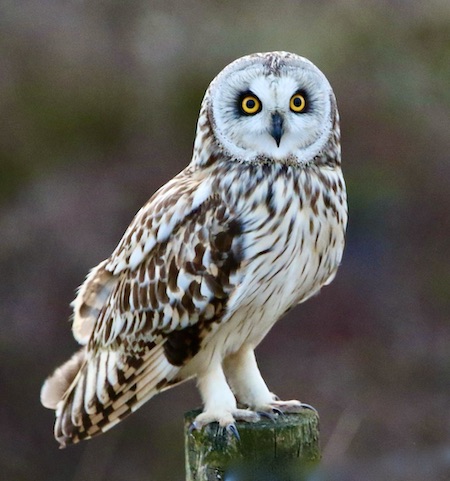 Despite the awful weather I have just had the best week of a lifetime with the local Owls.Starting with three different male Long Eared Owls, then the male Barn Owls and culminating at 9pm one night with the oldest male Short Eared Owl that I have ever seen. His face goes whiter and whiter with age and this male is the best I have ever seen. Check my Facebook page for all the others – you will not be disappointed! www.facebook.com/gordonyateswildlife
Despite the awful weather I have just had the best week of a lifetime with the local Owls.Starting with three different male Long Eared Owls, then the male Barn Owls and culminating at 9pm one night with the oldest male Short Eared Owl that I have ever seen. His face goes whiter and whiter with age and this male is the best I have ever seen. Check my Facebook page for all the others – you will not be disappointed! www.facebook.com/gordonyateswildlife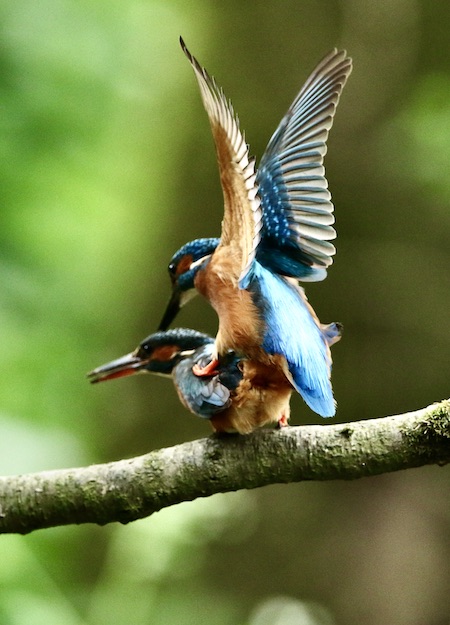 One result of spending six hours with a pair of Kingfishers is that in addition to unusual prey items there is always a chance of filming copulation. Kingfishers usually rear two broods of young per year so while the first brood are still in the nest-chamber the adults are already thinking about the second brood! Unfortunately their position was not good for the camera but I am sure that he was quite happy!!
One result of spending six hours with a pair of Kingfishers is that in addition to unusual prey items there is always a chance of filming copulation. Kingfishers usually rear two broods of young per year so while the first brood are still in the nest-chamber the adults are already thinking about the second brood! Unfortunately their position was not good for the camera but I am sure that he was quite happy!!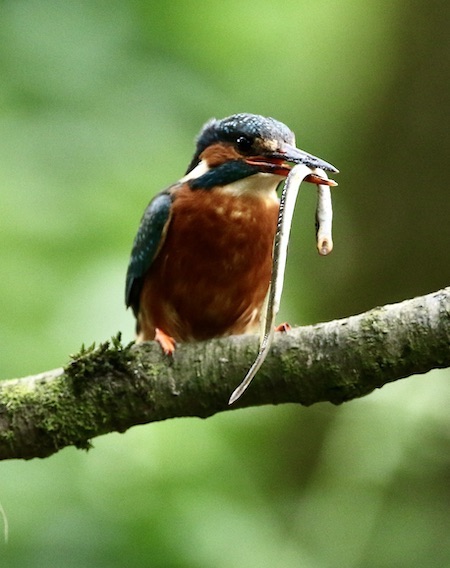 I have been asked many times why, after fifty one previous years I find it exciting to film a breeding pair of Kingfishers again? My answer, of course, is that no two Kingfishers are the same and that something unpredictable might happen – three days ago it did! I had been watching the female Kingfisher for more than an hour when, suddenly, she flew high into the air and plunged into the stream. What she came out with has only been recorded occasionally before as food of the Kingfisher – it was a Lamprey!! She flew with it to a stone by the nest but then, with great difficulty, she swallowed it herself and I had never seen a Lamprey before!!
I have been asked many times why, after fifty one previous years I find it exciting to film a breeding pair of Kingfishers again? My answer, of course, is that no two Kingfishers are the same and that something unpredictable might happen – three days ago it did! I had been watching the female Kingfisher for more than an hour when, suddenly, she flew high into the air and plunged into the stream. What she came out with has only been recorded occasionally before as food of the Kingfisher – it was a Lamprey!! She flew with it to a stone by the nest but then, with great difficulty, she swallowed it herself and I had never seen a Lamprey before!!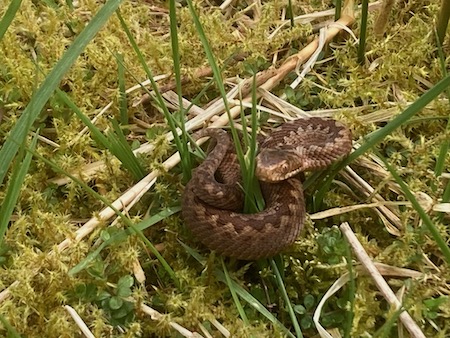 I fear that this last cold, wet Spring will be another nail in the coffin of my local Adders. Last week produced the first warm day which they require before emerging and basking in the sun. Despite a thorough search only one female was found and there were no moulted skins of males which they shed prior to breeding. However, the good news was that I found a young Adder, born last August, so hopefully all is not lost.It is sad though that only seven years ago I added a tick to my wildlife bucket list when I filmed two male Adders ” Dancing” at this very same site. It is an event that very few wildlife enthusiasts ever see so I enclose some of those photos in the gallery as I am unlikely ever to see it again.That same day I had four courting Adders in a ball – enjoy – but don’t get too close!
I fear that this last cold, wet Spring will be another nail in the coffin of my local Adders. Last week produced the first warm day which they require before emerging and basking in the sun. Despite a thorough search only one female was found and there were no moulted skins of males which they shed prior to breeding. However, the good news was that I found a young Adder, born last August, so hopefully all is not lost.It is sad though that only seven years ago I added a tick to my wildlife bucket list when I filmed two male Adders ” Dancing” at this very same site. It is an event that very few wildlife enthusiasts ever see so I enclose some of those photos in the gallery as I am unlikely ever to see it again.That same day I had four courting Adders in a ball – enjoy – but don’t get too close!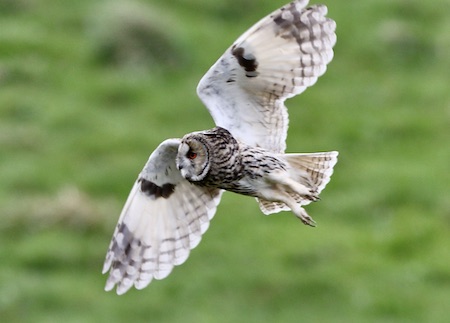 On a visit into the hills during the week it was good to see hunting Long Eared Owls. The incessant rain will have had a serious impact upon them and even more impact on Short Eared Owls who have no way of hiding from the conditions. Time will tell whether they are able to rear young this Spring but lets hope so.
On a visit into the hills during the week it was good to see hunting Long Eared Owls. The incessant rain will have had a serious impact upon them and even more impact on Short Eared Owls who have no way of hiding from the conditions. Time will tell whether they are able to rear young this Spring but lets hope so.